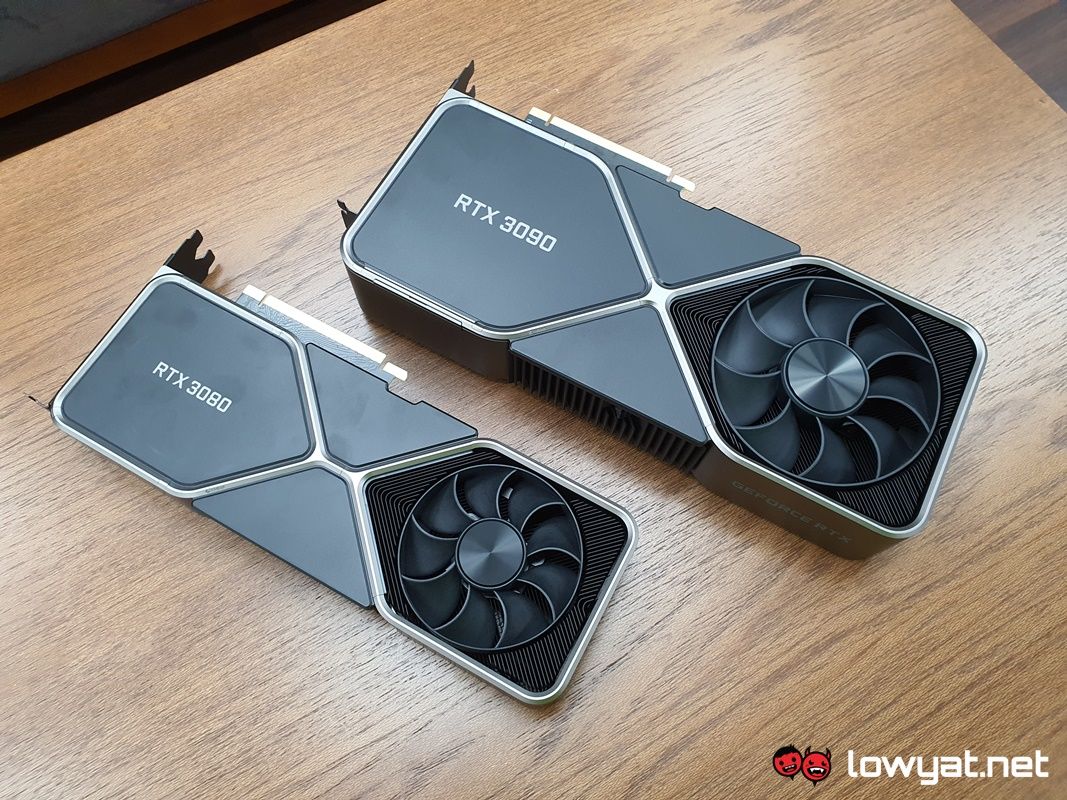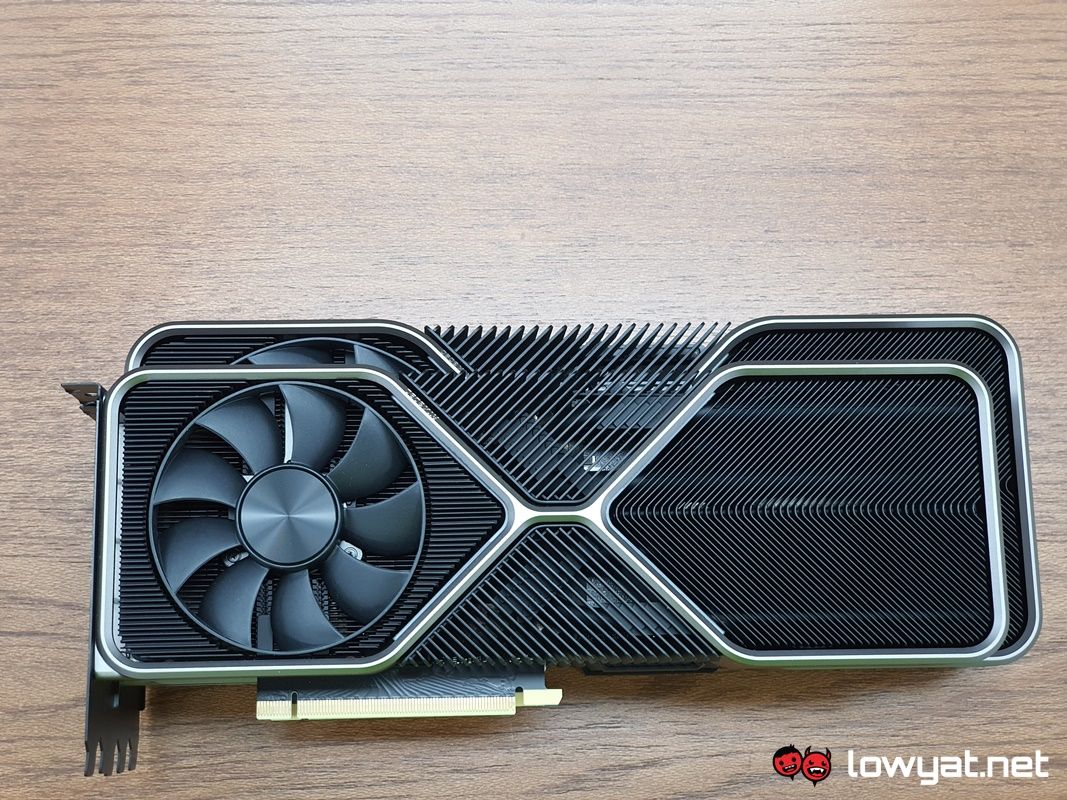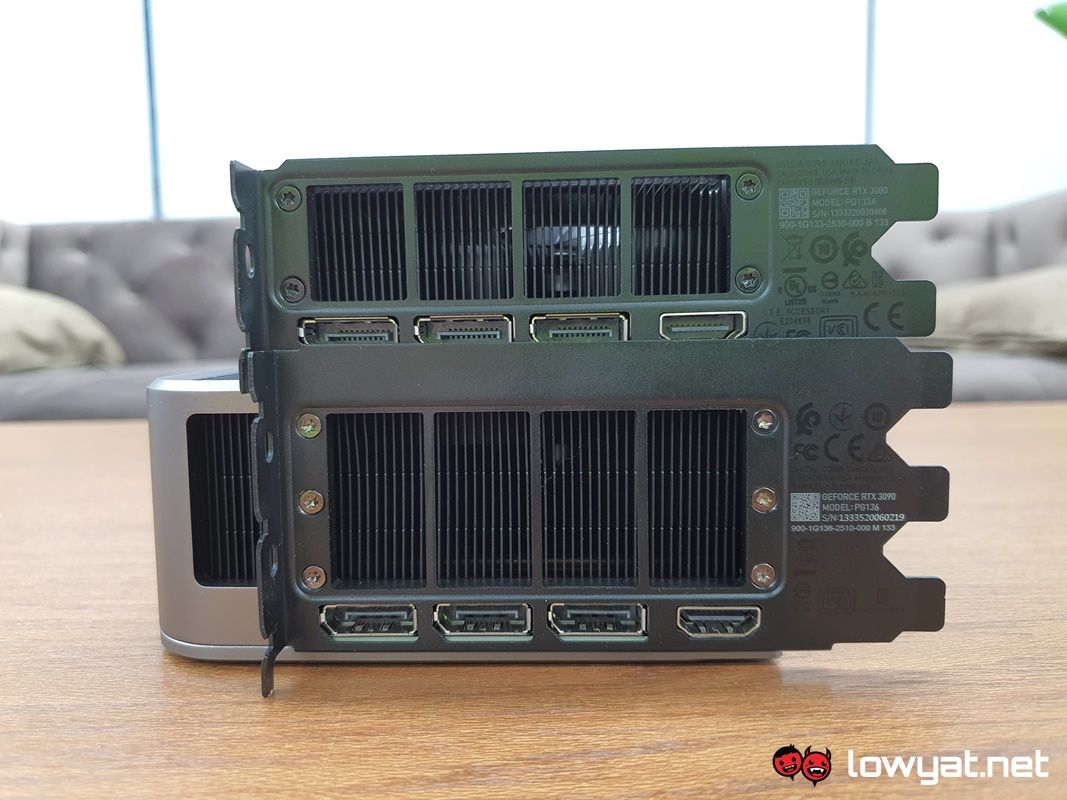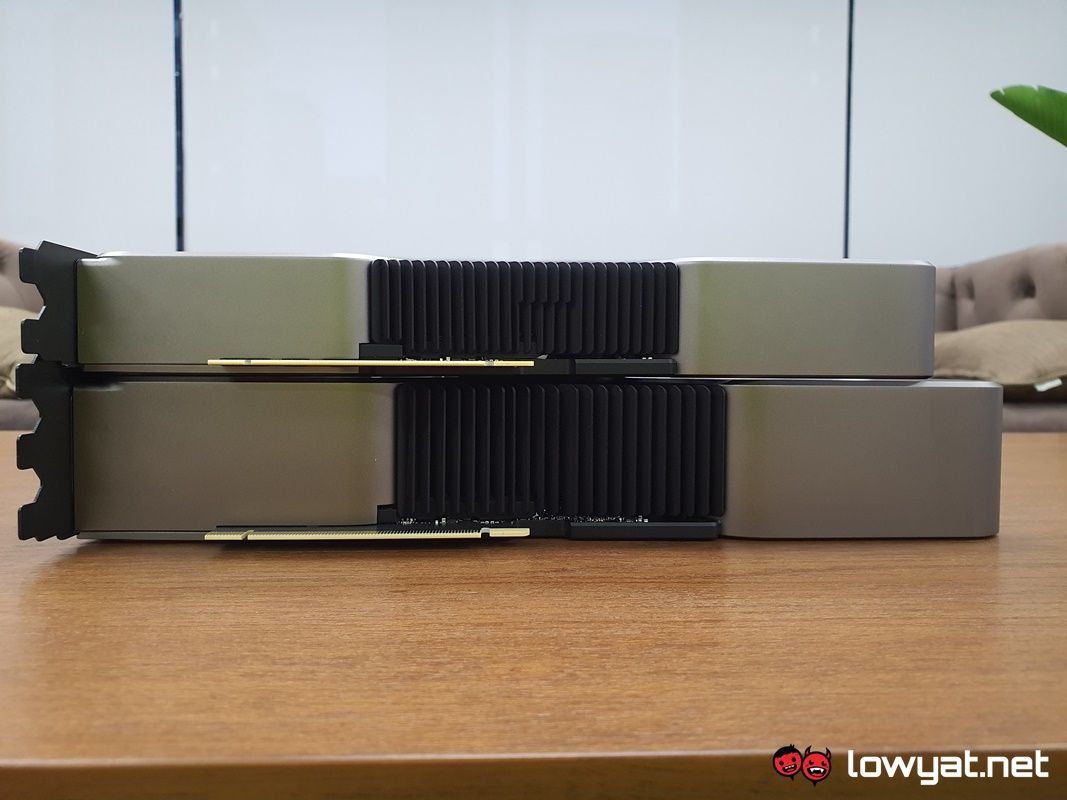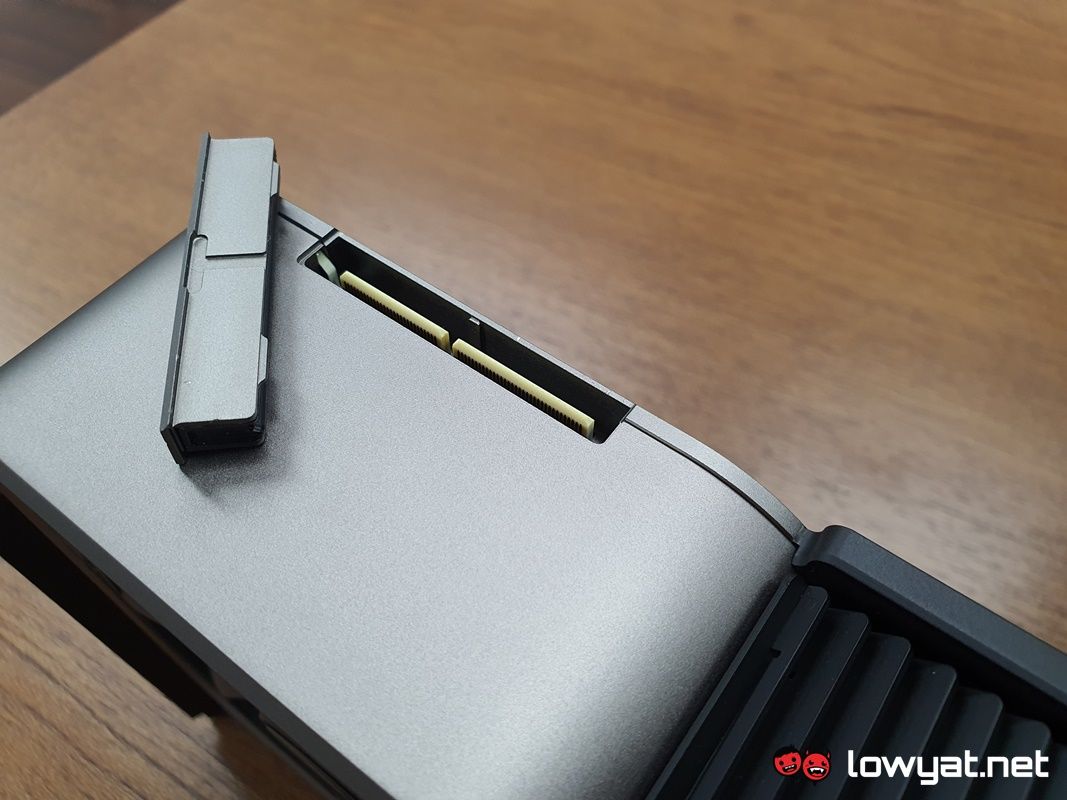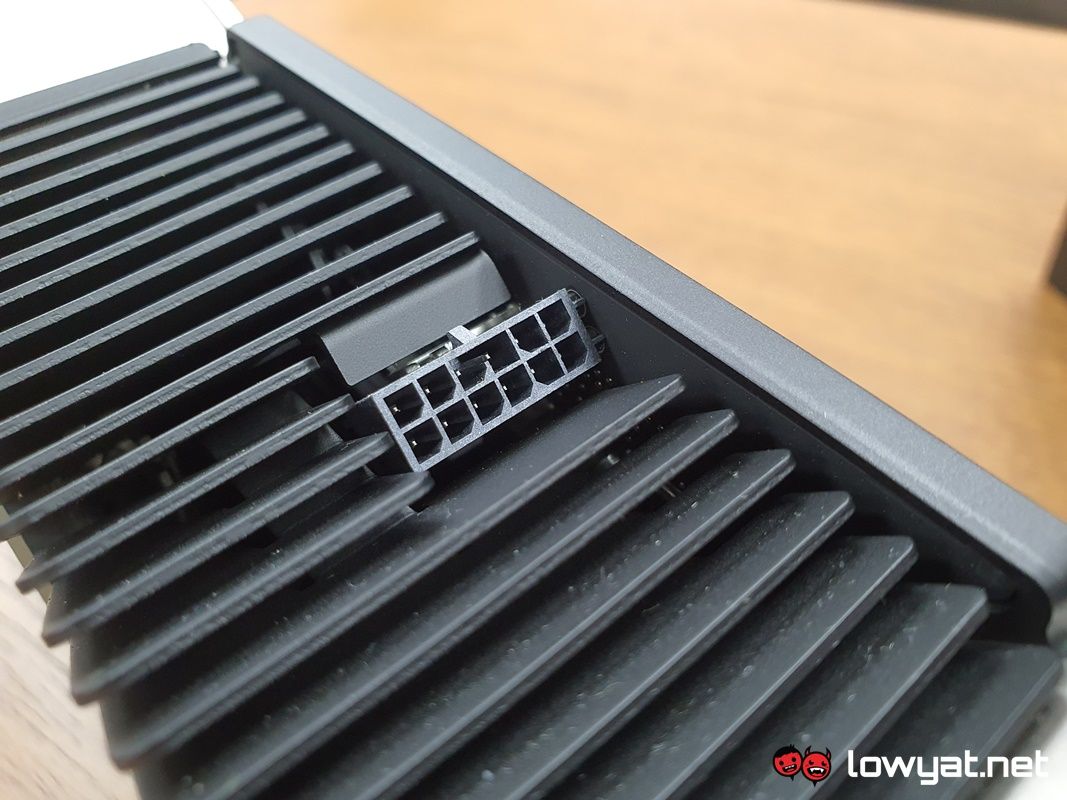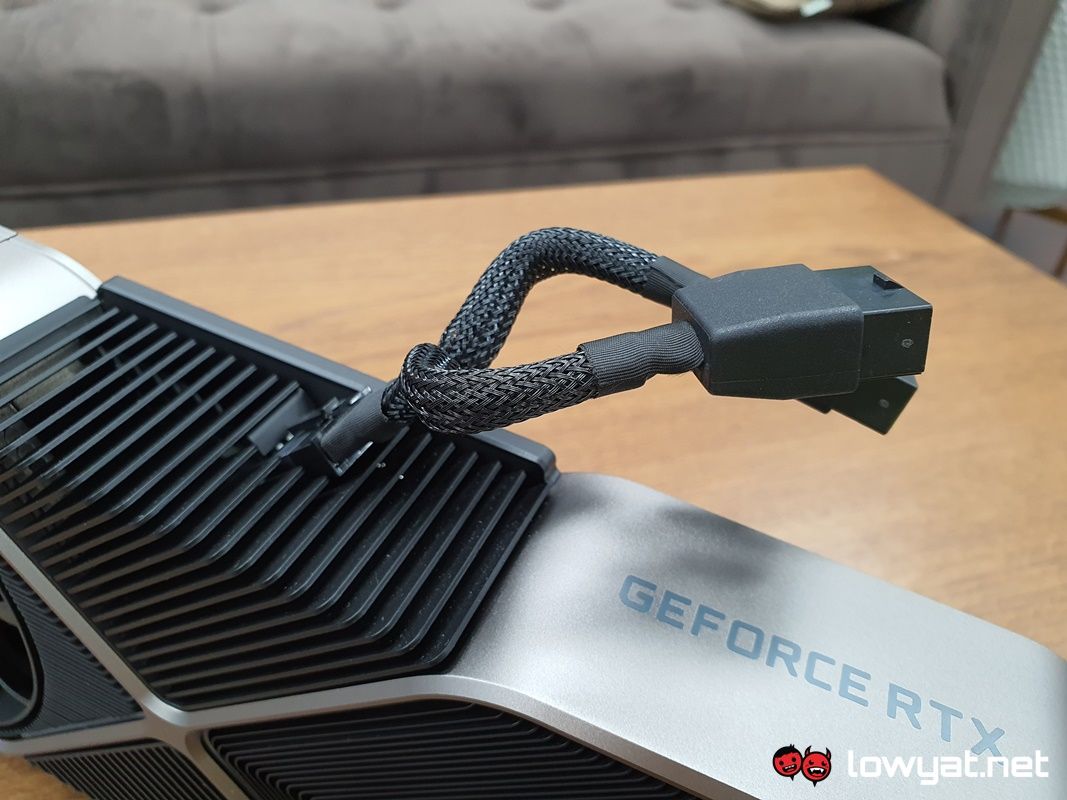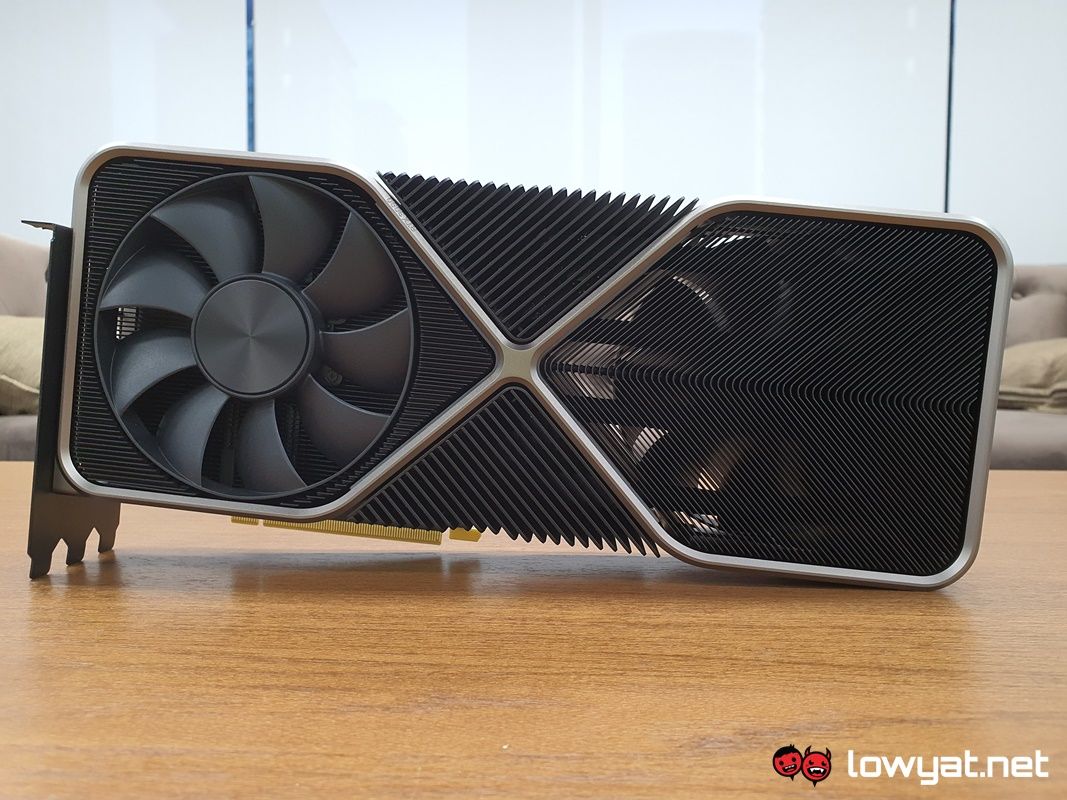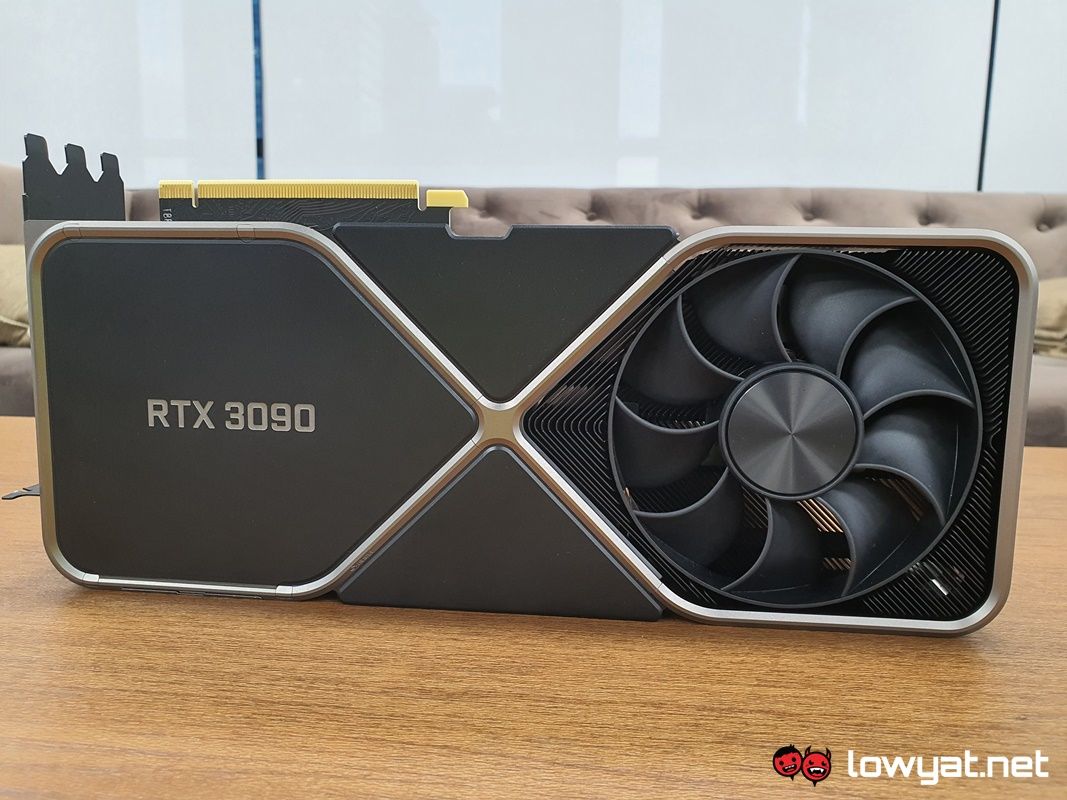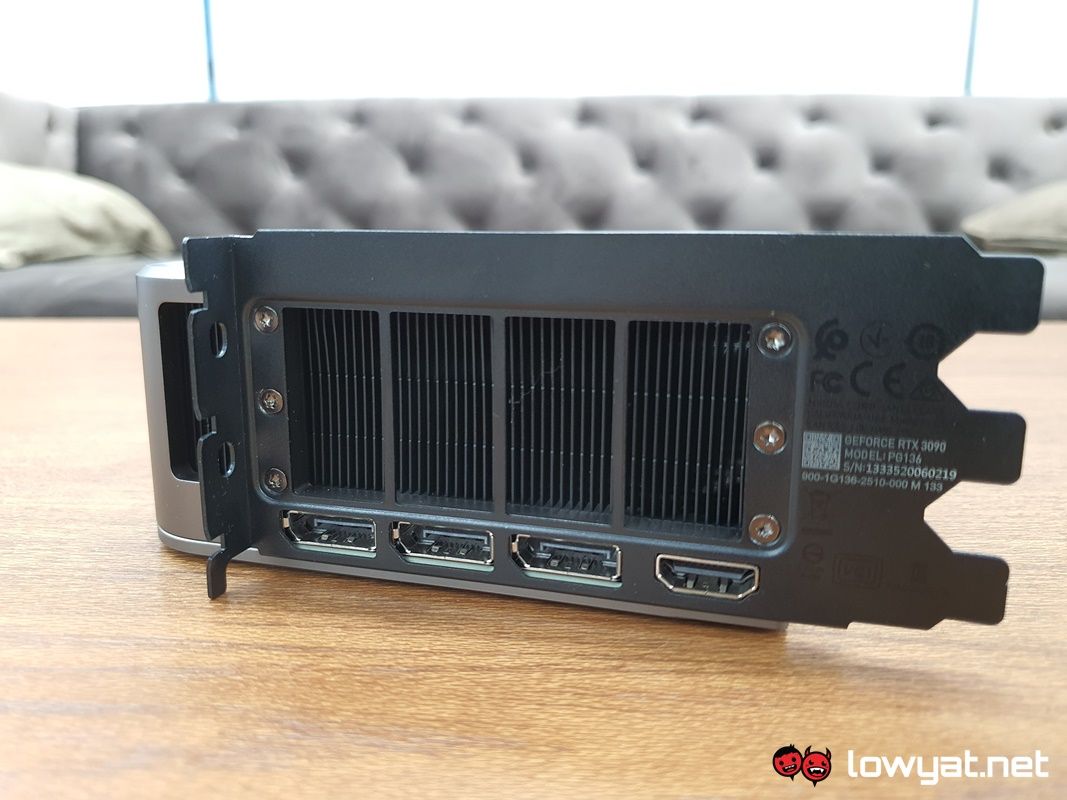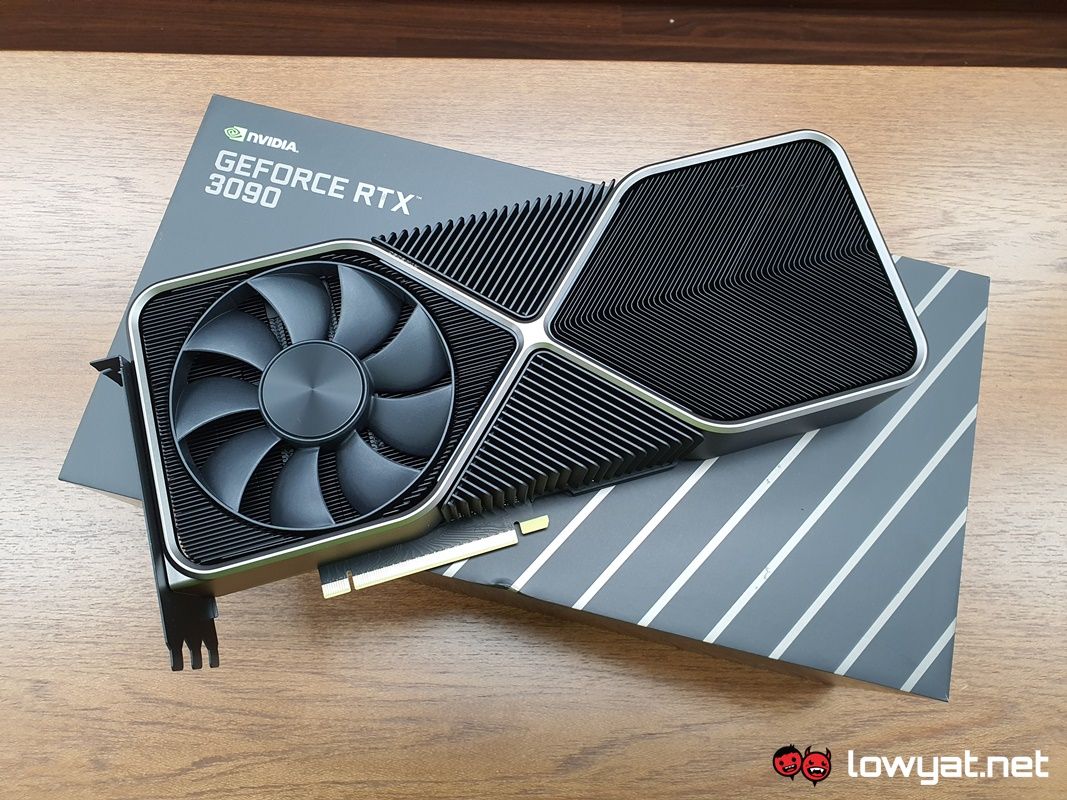I’m going to start by addressing the elephant in the room: Yes, the card is huge, and yes, it is heavy. When I first introduced the RTX 3080 FE, I called it a “Chonky Boy”, a term of endearment that now seems more fitting for the RTX 3090 FE. It is – in every physical aspect – bigger and thicker than even an RTX 3090 from an AiB partner.
The card literally takes up three slots on a motherboard and because of its extra height, anyone getting this card is going to want to the side clearance of their casing into consideration too. Another thing that the RTX 3090 FE has that the RTX 3080 doesn’t is an NVLink SLI bridge at the top of the card. It is, in my honest opinion, an odd manufacturing choice, but at the same time, this seems like a subtle way for NVIDIA to say that you can never have too much power in a system. Especially when that power comes from a card with TITAN-level performance.
Beyond that, the RTX 3090 FE’s cooler shroud is identical to the RTX 3080 FE’s in pretty much every single aspect; this includes the same CNC-machine cut heatsink design, the angled heatsinks, the Dual Axial Flow Through fan orientation. And right down to the same ultra-compact PCB design. Oh, and lest I forget, the card also uses NVIDIA’s new 12-pin PCIe connector in order to run. On a somewhat related note, I need to point out that the Founders Edition of the RTX 3090 isn’t going to be available in our market. So, if you’re still hell bent on being a proud owner of an RTX 3090, you’re going to have to settle for one of the several custom-cooled variations from NVIDIA’s AiB partners.
Specs-wise, the RTX 3090 FE is built around NVIDIA’s 8nm Ampere GPU technology, and more specifically, the GA102 architecture. Further complementing its sheer size and tremendous nature, the card is packed with 24GB of GDDR6X graphics memory, running at 19.5Gbps. It also has a 384-bit memory bus and statistically, is capable of achieving 36 Shader-TFLOPS, 69-RT-TFLOPS, and 285 Tensor-TFLOPS. Ports-wise, we’re looking at the same three DisplayPort 1.4a and HDMI 2.1 outputs for the RTX 3090 FE.
The other major attraction of the RTX 3090 FE that NVIDIA is excited about is that it is the first graphics card in its arsenal capable of running games at 8K resolution and at a maximum refresh rate of 60Hz. Mind you, this is technically only achievable with some titles, specifically those with support for the company’s DLSS upscaling technology.
We’ll be putting up a review of the GeForce RTX 3090 soon, specifically one using ASUS’ TUF Gaming GeForce RTX 3090. So, stay tuned.
